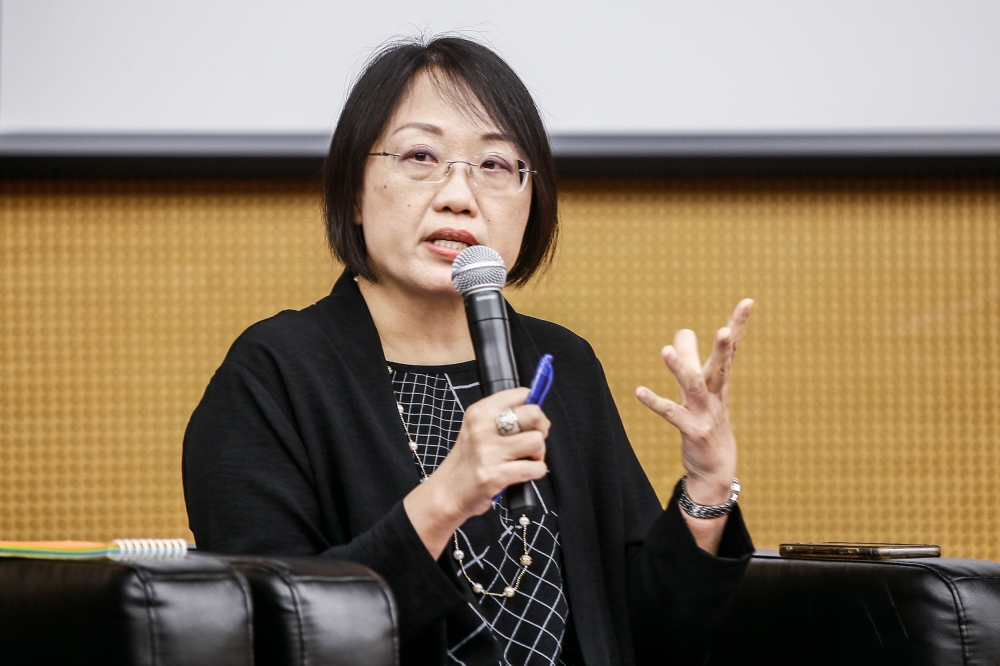KUALA LUMPUR, May 30 — The scarcity of quality preschool teachers is an alarming issue that has persisted in the Malaysian educational system for years, said experts.
Only 18 per cent of private preschool teachers have a diploma in early childhood education to date, said Ministry of Education (MoE) Curriculum Development Division deputy director Sarina Salim.
According to the Malaysia Education Blueprint 2013 — 2025, all preschool teachers were required to have a minimum diploma in early childhood education by 2020.
However, despite having professional qualifications, a concerning trend has emerged, revealing that many preschool teachers lack critical thinking abilities.
This raises questions about the effectiveness of their educational practices and their impact on children’s development as preschool teachers are important figures in shaping a child’s cognitive, social, and emotional development during their early education journey.
The ability to think critically enables educators to engage students in meaningful discussions, encourage problem-solving, and develop analytical skills.
“We need to have teachers who are critical thinkers and not just based on curriculums. Getting a diploma is just a diploma if they don’t have critical thinking skills,” said psychology and child and human development lecturer Rebecca Chan from the National Institute of Education in Singapore during a panel discussion titled “Shaping first steps: A comprehensive review of preschool education in Malaysia” at Bank Negara Malaysia here today.
She also said that preschool teachers’ thinking levels are not at the evaluative level as children nowadays are a lot smarter than they think they are.

What are the causes?
Taylor’s University Curriculum Innovation and Development director Lydia Foong said that the lack of emphasis on critical thinking in preschool teacher training programmes is the main factor for the lack of quality teachers.
“To tackle the issue of lack of quality teachers, we first need to look into the training process quality. The training process quality entails the ability of teachers to handle the class, interact with the children and provide emotional support to the children in the class.
“This is not addressed in the structural quality but it’s something you just think about on your own. Hence, the quality of trainers itself is very important.
“If you want to look at the overall quality, you really need to look at the classroom practice. So, to facilitate classroom practice, you need teachers who are very well-versed and have experience.
She also said that although professional qualifications are a prerequisite for preschool teachers, the curriculum for teacher training programmes may not prioritise the development of critical thinking skills.
“Just because you have a professional qualification in early childhood doesn’t mean that you will become a great teacher trainer. You are only fulfilling the minimum requirement of the standards,” she said.
She added that traditional teaching approaches in preschools often emphasise memorisation and regurgitation of information rather than encouraging inquiry and critical thinking.
“Hence, teachers possessing the required professional qualifications may not have received adequate training or support to develop and apply critical thinking skills themselves. Consequently, they are ill-equipped to foster critical thinking abilities in their students,” she said.
What should be done?
To address the issue, Foong said that the government should consider viewing private and public sector teachers as one and provide them with all the necessary resources.
“If they are teachers, they are the nation’s teachers because they are all treating the human capital of the nation. Don’t segregate them as private or public sector teachers.
“If the government has funding to provide training, then provide it for all the teachers, don’t just do it for the public sector teachers,” she said.
Foong added that collaboration between educational institutions and early childhood education experts can also contribute to resolving this issue.
“Partnerships with universities and colleges can facilitate the development of specialized preschool education programs that combine theoretical knowledge with practical experience. This collaboration can attract aspiring educators, nurture their passion for early childhood education, and provide them with the necessary tools to excel in their profession,” she said.
Real Education Group Centre of Learning and Teaching head Esther Yong Siew Nget said that the government and educational authorities must recognise and prioritise the importance of early childhood education.
“The government should allocate adequate resources, funding, and support to improve the recruitment and retention of qualified teachers,” she said.
One of the participants who attended the panel discussion suggested that an act should be in place to make professional qualification mandatory for all preschool teachers.
Sarina said that the government has formed a policy in place, “the MoE has taken initiatives to work with the Institute of General Practice Management to make diploma courses available for a reduced fee to both the sectors, especially to the private sector”.
“Besides, each state has their own teaching training institute including Sabah and Sarawak,” she said.
She also said that for easy accessibility to preschools, the government has decided to open two sessions for preschools and has agreed to build 88 public preschools by this year.
“We are looking into having preschool in the afternoon section as well and adding new preschool classes even in secondary schools. However, in order to achieve this, we need to work together with government and other agencies to provide quality pre-education for everyone,” she said when addressing a question from the public on the lack of preschools in poor neighbourhoods.






















